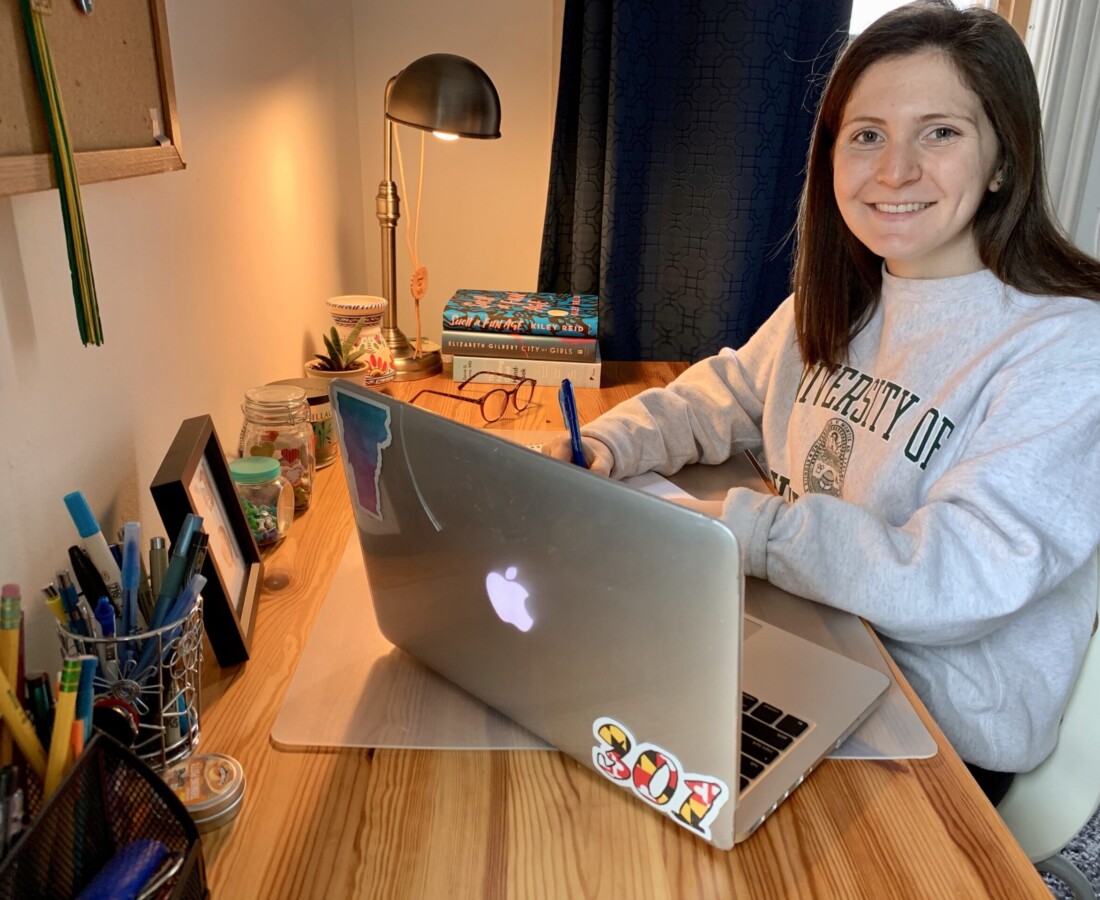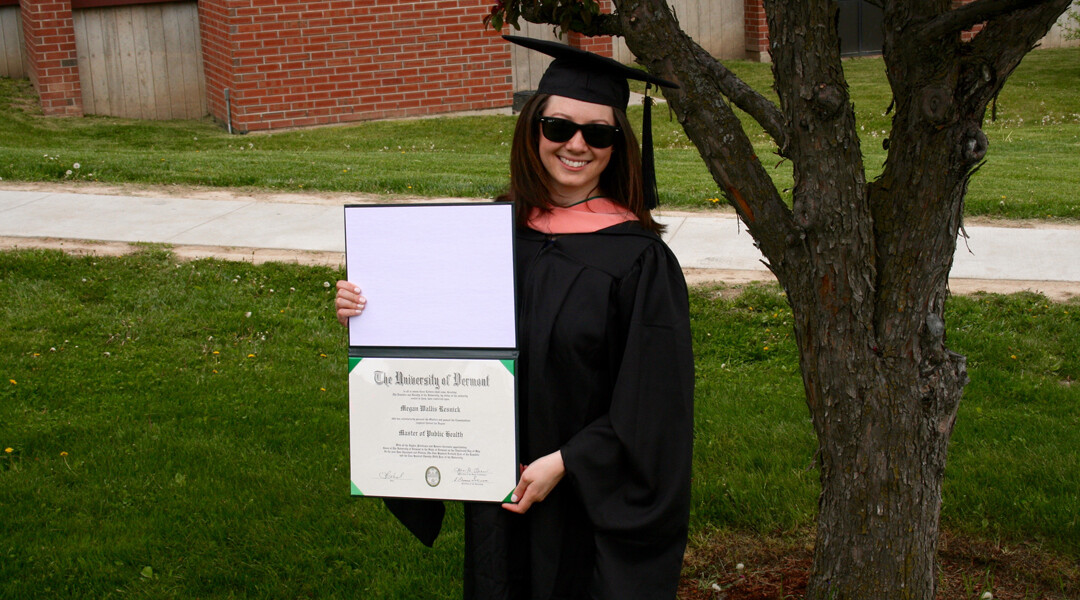By Carli Riibner
Adjusting to remote learning is something many people across the world are facing. Social distancing is keeping classmates and professors apart, but multiple forms of technology are easing the transition. Professors are turning to Zoom, Microsoft Teams, and Blackboard to recreate a traditional classroom experience.
As a senior at The University of Vermont Grossman School of Business, I have taken online classes before, but never had a full online course load before COVID-19. With just two months left of my undergraduate career, a quick transition has been paramount to make the most of online learning.
Transitioning to Remote Learning
University of Vermont Instructional Designer, Carolyn Siccama, defines online learning as courses being held in “our learning management system, Blackboard, so when a student comes in they can expect the syllabus and all of the assignments to be submitted online.” This includes all audio and video lectures, as well as all professor interaction, “so you don’t have to be anywhere at any one time to take a course,” Siccama explains.
Many professors have pre-recorded their lectures and allow students to watch them on their own. This increased flexibility is very convenient for students who had otherwise rigid schedules, while still maintaining the same rigor of what would have been taught in the classroom. Alternatively, some professors are maintaining normal class times and meeting as a class, taking attendance, and giving live lectures. This method helps students establish a set schedule, which can be very helpful in a time with so much uncertainty.
Adjusting to remote classes requires a great amount of communication from both professors and students. Professors are constantly asking us for advice on how to create a successful learning environment from afar and requesting student input. Communication and honesty go a long way in these unpredictable times.
“If something comes up, just reach out [to your instructor].” Siccama discussed with faculty the importance of being flexible, which is “part of the convenience and flexibility of being an online instructor.” While remote learning comes with many challenges, we’re all working together to make the best of the situation which means transparency is key.
Tips for Successful Remote Learning
Tip #1: Create a Calendar
From the start of an online course, it’s important to understand class expectations, assignment details and due dates. Calendars are your best friend. Once all courses switched to online, professors released new syllabi with updated assignments, so I created a combined schedule where I outlined when every assignment was due. As a course progresses, it feels great to cross off tasks as they are completed.
Tip #2: “Commute to Class”
Being stuck at home for weeks on end makes classes, work, and fun blend together. To find something that draws the line between the three can help individuals be more focused and productive during each task, meeting, or activity. One idea to draw a line is participating in a “commute.” Whether it’s walking outside for five or 30 minutes “to class,” which really is just returning home, this helps mentally establish that now it’s class time.
Tip #3: Fully Immerse Yourself
It’s easy to get distracted during remote courses and not feel like you’re fully sitting in a classroom because, well, you’re not. To get the most out of it, it’s important to be fully involved, and get to know your professor and classmates. Siccama describes the “rich community of learners. You’re part of a learning community.” A substantial part of online courses is “introducing yourself, making your experience, background, and interests known for the instructor in your peers.”
Fine more tips and recommendations about How to be a Successful Online Student.
Carli Riibner is an undergraduate student at the University of Vermont currently studying Business Administration and is a student worker in Continuing and Distance Education. She shares her perspective on remote and online learning as UVM has transitioned to remote coursework during the Coronavirus pandemic.




